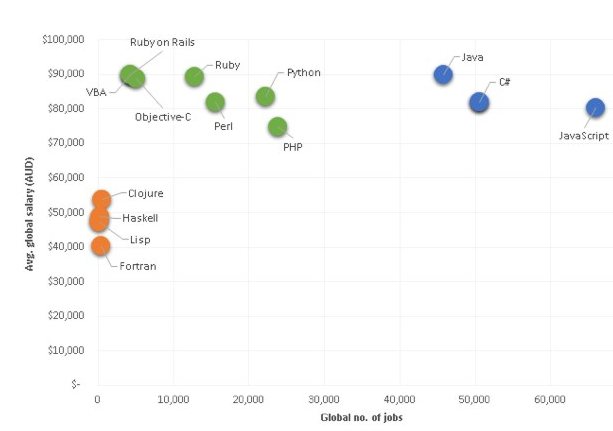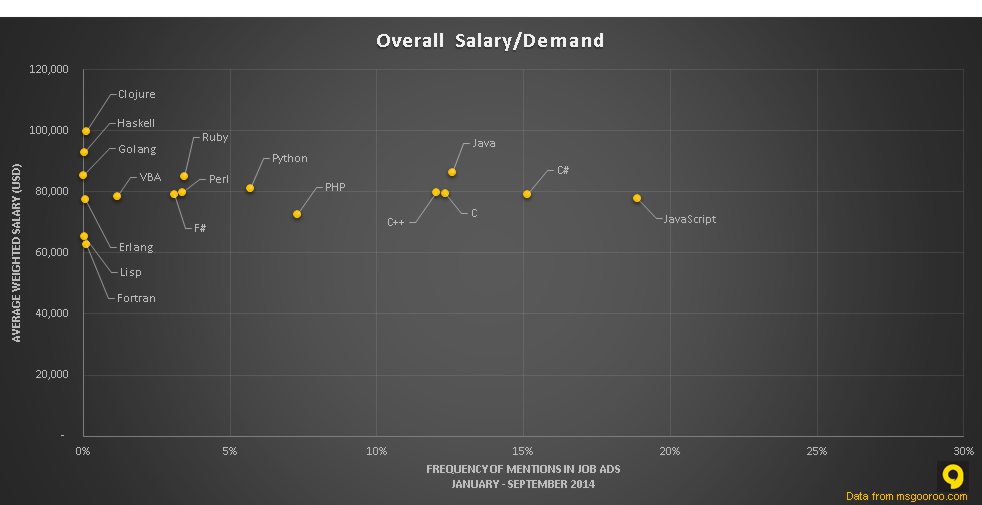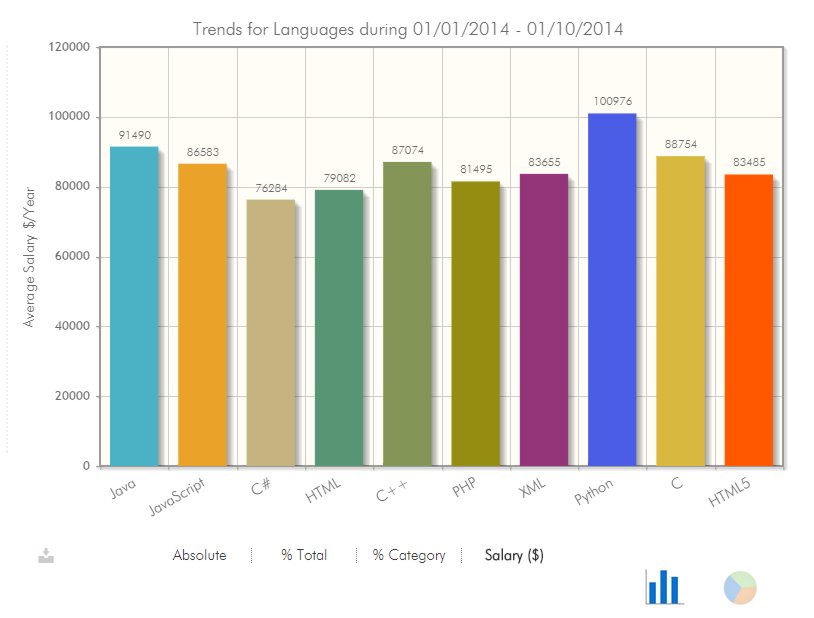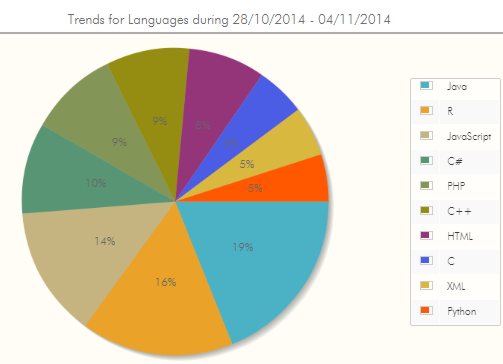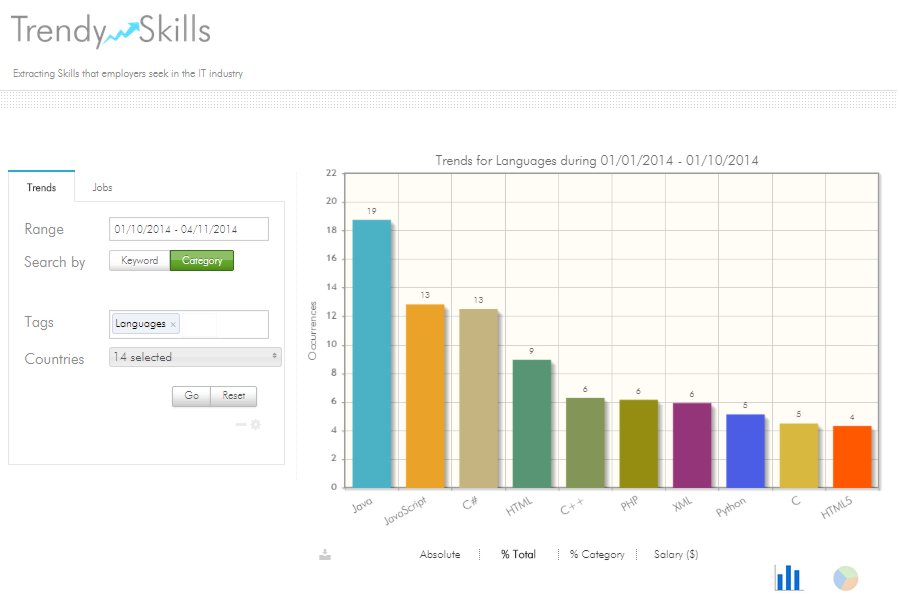| Which Languages Are In Demand? |
| Written by Janet Swift |
| Wednesday, 05 November 2014 |
|
As professional programmers we are obviously interested in which languages are in demand and how they compare in terms of how much they pay. This information can be found from an analysis of job adverts. According to career research website MS Gooroo: Job advertisements aren't a perfect set of data, but can be a good proxy for demand and salary analysis. Back in July it used data from 302,000 job advertisements that mentioned specific languages from among 1.5 million tech jobs advertisements collected in the first six months of 2014 from the USA, Great Britain, and Australia.
In reporting the results Carl Joseph and Terence Siganakis noted "an obvious clustering of languages" into three distinct groups: Established leaders (in blue in the chart and including Java, C#, and JavaScript) which are "common in paying organisations and show a high demand globally". Followers (in green) such as PHP, Python, and Ruby were found to "pay on average the same salaries, although their is 50% less demand for them". Finally there are a group referred to as Niche (orange) which "show very low demand and salaries almost 60% lower". Since then MS Gooroo has doubled the number of job ads and recently took another look, this time adding in C, C++ and F# which were omitted from the original analysis. Here is the aggregated data from USA, Great Britain, and Australia:
On GoorooTHINK Carl Joseph makes these observations: Leaders The leaders of the group are still ahead in very much the same positions. Java, C++, and C all pay well and are in high demand. JavaScript and C# are ahead of the popularity race but are earning approx. $6,000 (USD) less than Java roles. Followers The followers group is much the same except that Perl has fallen slightly in demand with Ruby overtaking it. This round, we've included F#. Jobs mentioning F# skills are asking for $79,000 USD. Niche The biggest difference we noticed from July is a perceived rise in salary for niche languages like Clojure Golang, Erlang, Haskell, Lisp, and Fortran. These appeared with lower salaries earlier in the year. The change is due to a number of reasons, both analytical, and market based:
MS Gooroo also has charts for each of USA, Great Britain and Australia and there are some interesting differences. For example, in Britain C# is the most in demand language and there is almost no demand for Clojure, Erlang, and Lisp. The TrendySkills website collects similar data by looking for specific keywords in job ads and makes it available interactively. As well as languages it covers other categories - such as JavaScript Libraries and Architectures Its data comes from a total of 14 countries (USA, UK, Germany, Sweden, Spain, Ireland, Netherlands, Austria, Czech Republic, Belgium, Finland and Greece.and you can filter those you are interested in and also set a date range. You can see salary data - but not for all countries. The chart above, which covers the same data range as the recent msgooroo one shows that over all the countries covered Java, JavaScript and C# were more in demand and that Python was the best paid and C# the worst paid.
Trendy Skills only presents results for 10 languages per chart and searches for a wider set compared to msgooroo - HTML and XML are included for example, also R which was the second most wanted language last week. The site was built as part of an undergraduate thesis project by Vassilios Barzokas and, as well as providing an interactive tool for anyone to use, its API has been open sourced. It is a RESTful API and returns JSON format data. If you just want to use it, click on the image below to go to the site. More InformationProgramming languages - salaries and demand (October 2014) Related ArticlesObjective-C Overtakes C++ in TIOBE Index
To be informed about new articles on I Programmer, install the I Programmer Toolbar, subscribe to the RSS feed, follow us on, Twitter, Facebook, Google+ or Linkedin, or sign up for our weekly newsletter.
Comments
or email your comment to: comments@i-programmer.info |
| Last Updated ( Thursday, 06 November 2014 ) |
